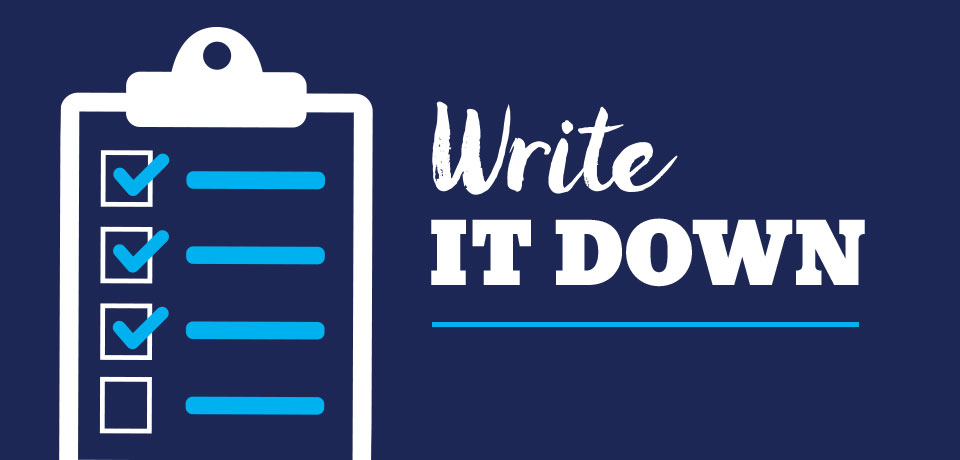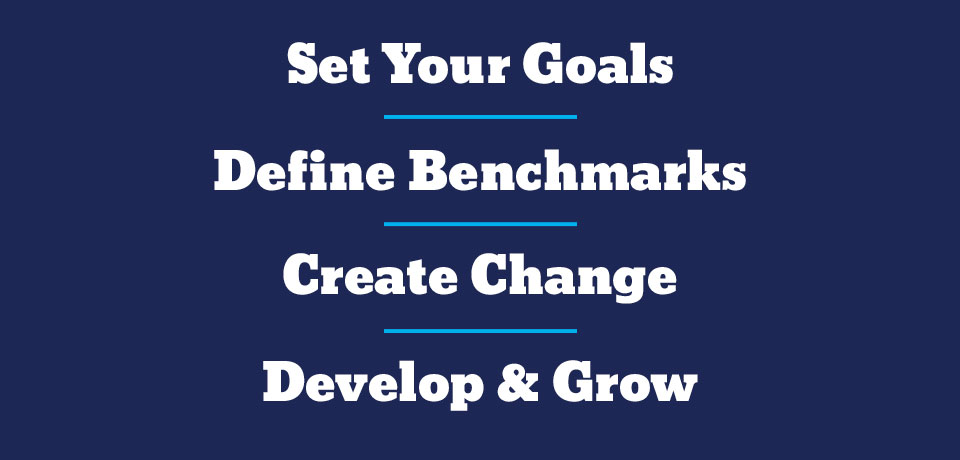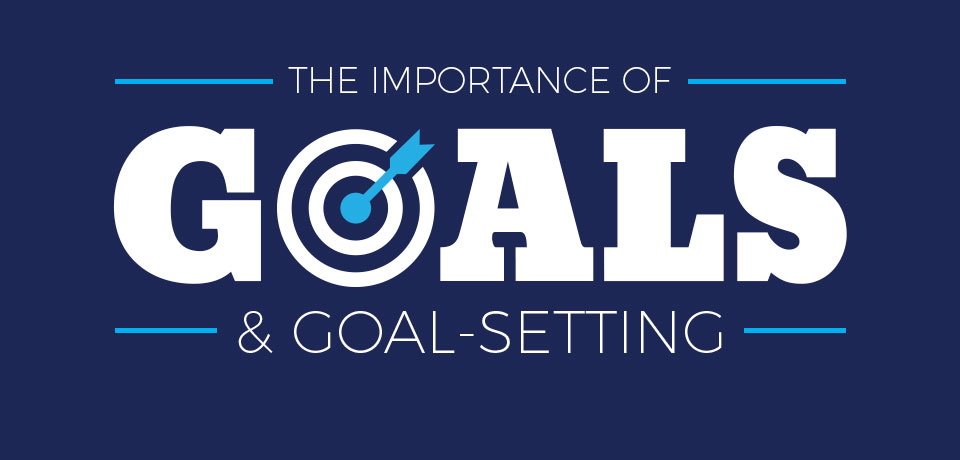Submitted by: Amanda Barnes, Sr. Recruiting Manager
We all know that change is a necessary part of life. But how do you make change happen deliberately to get somewhere specific in your life? Well, before you even come up with a plan, you first have to come up with a GOAL!
WHAT IS A GOAL?
Webster’s defines a “goal” as something that you are trying to DO or ACHIEVE.
Goals can come in many forms: personal, career, education, health and well-being, financial, etc. For example, you can set a simple goal to clean the house, or a more complex one, like to become CEO. Goals are personal and therefore represent the desire or need for personal change.
Once you have a goal in mind, you can then put together a step-by-step plan of how to accomplish it and easily track your progress!
WHAT IS THE PURPOSE OF A GOAL?
- Provides focus and minimizes distractions or procrastination.In today’s world it is easy to get pulled in a million different directions. And with the world at our fingertips in the form of our smart phones, we are more connected than ever before – but also more prone to constant distractions from the internet and social media. Having goals can help keep you on track and prevent too much disruption so that when you do get pulled away, you can easily pick up where you left off.
- Acts as a living resume so you can see what you have accomplished. This is especially true for career goals. As you mark items off your to-do list, you are essentially writing your resume! You are showing what you have accomplished in a given role. This aspect of goal-setting can come in handy when jockeying for a promotion or career move. You can easily tell your supervisor or a hiring manager, in real terms, what you have been able to accomplish and can have real benchmarks to show for it.
- Acts as a confidence boost and provides motivation. Seeing yourself mark items off your goal’s to-do list automatically gives you a boost because you can see that you are making progress. This is why breaking large goals into smaller, bite-sized chunks is so important. Think about an exercise goal – the saying goes that it takes four weeks for you to notice a difference, eight weeks for your close friends and family to notice a difference, and 12 weeks for the rest of the world to notice – so you have to keep going. Don’t we all love when we get compliments? Of course! That is what keeps us going! When someone recognizes the hard work we have put in, it energizes us to keep moving forward. The same is true for any goal – you have to break it down into manageable steps that you can realistically accomplish, and then recognize those accomplishments before moving forward.
- Helps us see what we really want. Consistently reassessing our goals is important. Doing this helps us not only see if we are on the right track to achieving them, but whether they are still the goals we want to strive for. By reevaluating our objectives at different points in time, we are better able to judge where we want to be in our life or career, and how to get there. This self-reflection also helps to build better self-awareness, better goal-setting, and better goal-hitting – as well as the ability to embrace our failures as learning opportunities. The ability to look back through your progress and decide what is or is not working allows you to modify your plan and plot a new course.
- Helps us make the most of any experience. Without a plan, you won’t be able to experience most of what you intend to. Think of your dream vacation – except you’ve only got two days. If you don’t come up with an itinerary, you won’t be able to do and experience everything you want to in that timeframe! Taking it step by step is what gets you to that end result. There is no difference between determining your itinerary for an awesome vacation and laying out your goals for your life and career. Without a plan, you won’t get most of it done, or will get lost along the way.
READY TO GET STARTED?

It’s simple! The most important step of setting and committing to a goal is writing it down!
There is something about taking the time to write down a goal that makes it more tangible. It doesn’t have to be a big formal process: grab a post-it, get a planner, use regular paper – just get it out of your head and onto paper!
Then, remember to set benchmark and final deadlines. It’s not enough to just have a goal – you also have to break it down into mini-goals and set deadlines for accomplishing them, or else you could easily put them off forever.
TIPS

Keep in mind that if you hit your goal too quickly or too easily, you have probably set the bar too low for yourself! On the flip side, if you set the bar too high and you cannot reach your goal, your goal is counter-productive. That is what makes goals a little tricky. You have to find that sweet spot – not so easy that there is no challenge, but not so difficult that you can never achieve it!
Vision boards are an awesome tool for goal planning as well. Create your own by using quotes and pictures that embody your end goal – it will then serve as a constant visual reminder of what you are working so hard to accomplish!
Setting goals and reaching them are all about your mindset and preparation. You have to remember to remain positive in your journey! Striving to reach goals isn’t always the easiest thing, but being negative or miserable about it won’t lead to success either. A positive mindset leads to incredible things!
If setting a goal still seems too daunting, just remember: it’s simply about creating a big picture and breaking it down into bite-sized chunks that you can handle.
Now you’re ready to get started!

